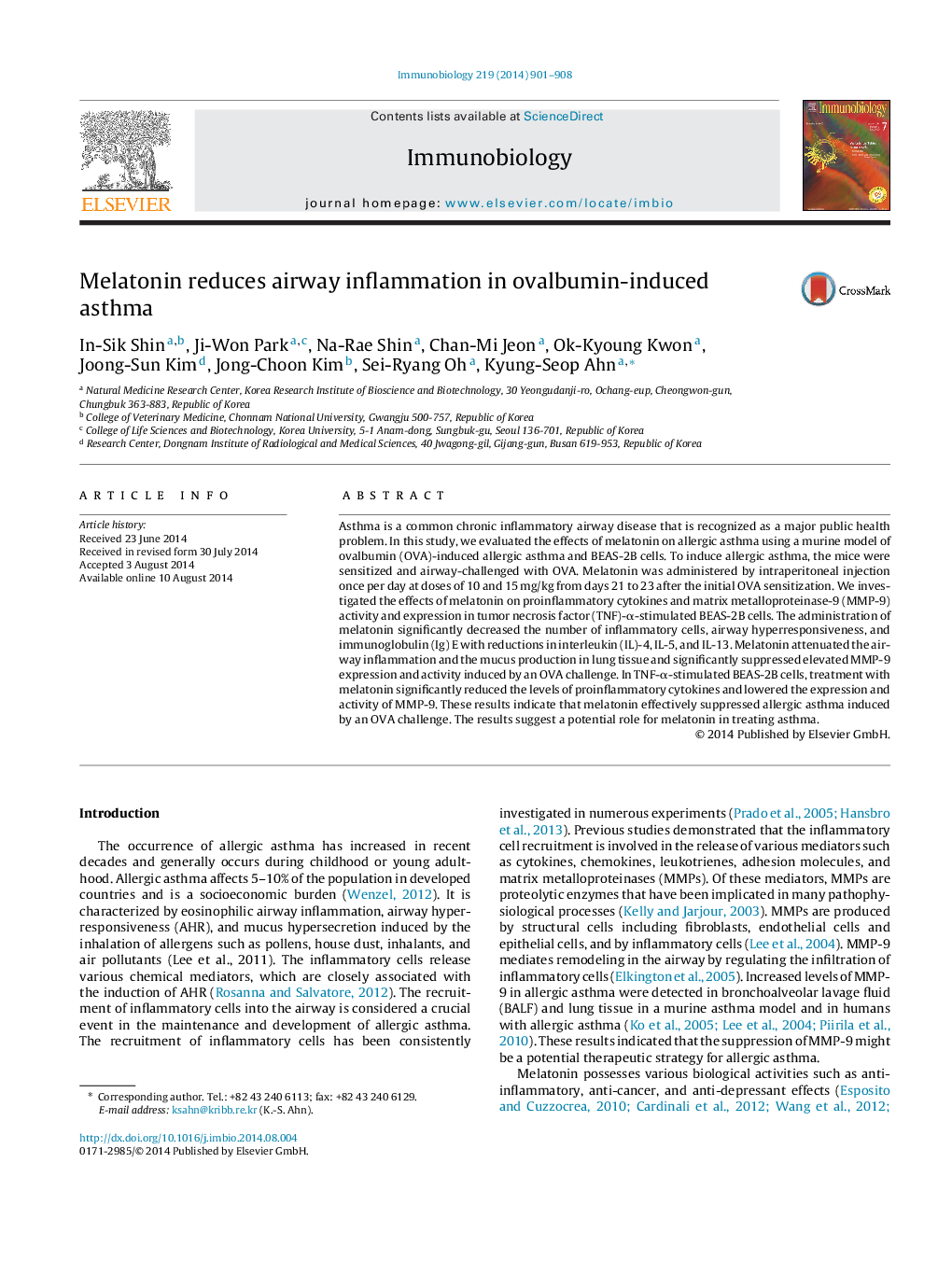| Article ID | Journal | Published Year | Pages | File Type |
|---|---|---|---|---|
| 2182813 | Immunobiology | 2014 | 8 Pages |
Asthma is a common chronic inflammatory airway disease that is recognized as a major public health problem. In this study, we evaluated the effects of melatonin on allergic asthma using a murine model of ovalbumin (OVA)-induced allergic asthma and BEAS-2B cells. To induce allergic asthma, the mice were sensitized and airway-challenged with OVA. Melatonin was administered by intraperitoneal injection once per day at doses of 10 and 15 mg/kg from days 21 to 23 after the initial OVA sensitization. We investigated the effects of melatonin on proinflammatory cytokines and matrix metalloproteinase-9 (MMP-9) activity and expression in tumor necrosis factor (TNF)-α-stimulated BEAS-2B cells. The administration of melatonin significantly decreased the number of inflammatory cells, airway hyperresponsiveness, and immunoglobulin (Ig) E with reductions in interleukin (IL)-4, IL-5, and IL-13. Melatonin attenuated the airway inflammation and the mucus production in lung tissue and significantly suppressed elevated MMP-9 expression and activity induced by an OVA challenge. In TNF-α-stimulated BEAS-2B cells, treatment with melatonin significantly reduced the levels of proinflammatory cytokines and lowered the expression and activity of MMP-9. These results indicate that melatonin effectively suppressed allergic asthma induced by an OVA challenge. The results suggest a potential role for melatonin in treating asthma.
